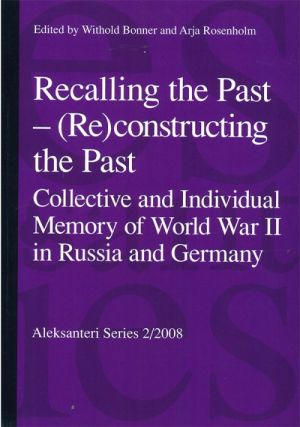Memories and scholarly exploration on memory have become a significant part of contemporary cultural studies. Breaks in the cultural and political orders in Russian and German societies had a strong impact on the re-negotiation of cultural memory in both countries. Since World War II has been one of the most traumatic events and highly emotive topics in German as well as in Russian and Soviet history, more than 60 years after its termination, the recall of wartime experiences is gaining significantly in importance. A re-evaluation of wartime history, therefore, has emerged in both countries.
As a consequence it has been possible to discuss forbidden and "forgotten" subjects: for instance, the siege of Leningrad, the Holocaust, the fate of POWs, life and death at the front and the "home" front, female soldiers in the Red Army, and the rape of women as a mass phenomenon in the occupied parts of Germany.
The aim of this multi- and interdisciplinary volume is to examine the fractures, interactions and intersections of private and collective memories in Germany and Russia and to facilitate understanding of how both recalling and forgetting play a significant role in constituting identities by individuals, communities and nations.


